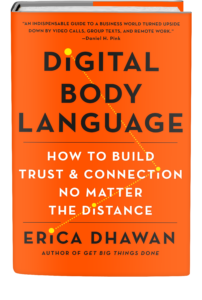This piece first appeared at Levo League and Huffington Post.
It’s graduation season, which year after year is filled with beauty and rituals and rites of passage.
I myself am a new graduate—I’m now the proud owner of an MPA from HKS (in other words, I’m following a service-driven kind of path—I’m dedicating my life to supporting, teaching, and encouraging young leaders to meet and exceed their potentials). For me, it’s the perfect time to take a step back, orient myself, and reflect upon what I’ve learned during the process of attaining my Master’s degree.
The main reason I decided to attend graduate school was to connect with like-minded individuals and “find my next career.” What I didn’t expect to learn, though, was this:
Going to Harvard doesn’t solve your career challenges.
In fact, it can multiply them; a major multiplier of considerations being
the inevitable epiphany of how much you just don’t know.
In this day and age, professional degrees aren’t a cure-all for your career. Non-technical (and non-lawyer or doctor) degrees carry both less weight and more flexibility as to what your next step may be.
Sheryl Sandberg spoke at a recent Harvard Business School graduation, and among other topics, brought up the issues that go along with choosing a career after graduation. “As you lead in this new world, you will not be able to rely on who you are or the degree you hold, you need to rely on what you know,” she said. I believe Ms. Sandberg is right on the money; that it’s when we do things in the world that we learn and build upon what we know. So, without further ado,
The Five Greatest Lessons I Learned at Harvard:
1) On Leadership: If you’re choosing between curiosity and
confidence, choose curiosity.
This lesson came my way from Professor Ron Heifetz this past January. Leadership is about living with a questioning mind, not having the confidence to have all the answers. The gift that great leaders, doers, and thinkers possess is how to harness curiosity and turn it into something worth being confident about.
2) On Objectivity: In science, the goal is to withdraw from
emotions, but those are inextricably linked. Scientific pursuits do not exist in a vacumm. Emotions often drive the scientific engine.
This lesson came to me after a talk with professional dancer/choreographer Liz Lerman in her course “Dance Collaboration.” What we feel, hear, experience, taste personally is what greatly impacts us professionally—not just in the scientific realm, but in any profession we might choose. We can’t ignore the personal– it’s our engine.
3) On Timing: If not now, when?
This snippet comes from Rabbi Hilllel (though it’s ringing in my ears from my HKS lecturer, Professor Marshall Ganz). It can feel like a difficult truth is that we only have one shot here in life—not to mention that who we are is determined by what we choose to do with our lives. A key takeaway for me was not to wait to be finished with school to do something in the world, to test out ventures, try new opportunities, and to put myself outside of my comfort zone.
4) On Being Your Own Superhero: There is something out there
that you are better at than anyone else in the world.
This came from an entrepreneurship forum I attended led by Michael Strong. It mirrors the “Everybody is a genius. But if you judge a fish by its ability to climb a tree, it will live its whole life believing that it is stupid.”
The idea is simple: we all have some type of creative genius. Elizabeth Gilbert phrases it well in her TED talk on genius: that instead of the rare oddball being a genius, every single person alive has a genius. A lot of this just has to do with striking a balance between confidence and curiosity (see No. 1 for more).This is something to remind every graduate out there—go find YOUR genius!
5) If you want to get anything done with a tightly organized group, then what you need is a cult.
We live in a supersocial society. Building a valuable network can make or break your career. And building social capital is about building transitive trust.
This came from a class I took with Clay Shirky. In it, we studied websites like Ushahidi, Meetup, VoteAgain2010, and Twitter—more specifically, we studied how the changing nature of new media influences public action. According to our examination, the best bets for companies today don’t come in the form of throwing endless money at an advertising campaign. The highest returns go to companies that can prove they care about their customers more than anyone else. So go ahead. Build your tribe.
For more life lessons, explore my private collection of leadership & career tools, tipsheets & scripts . . . plus a few hot Bollywood dance moves? For free. Access to The Generational Alchemy LIBRARY is yours, when you jump on my mailing list.


